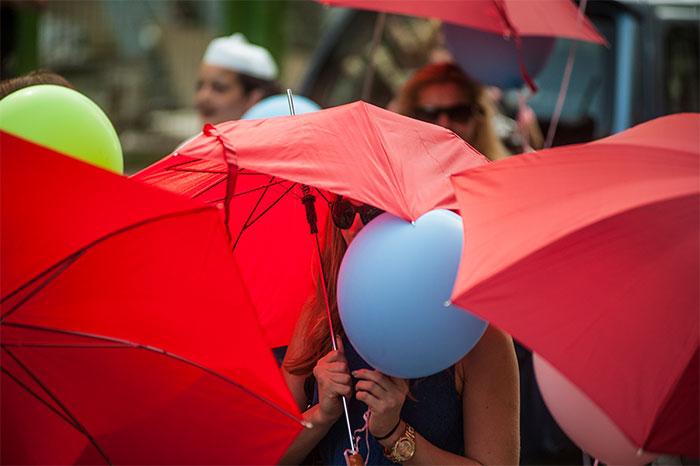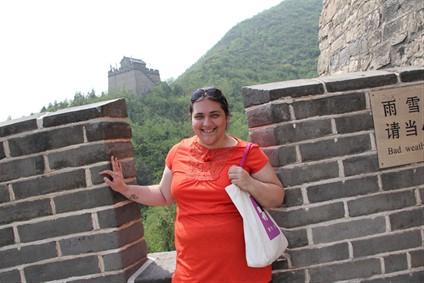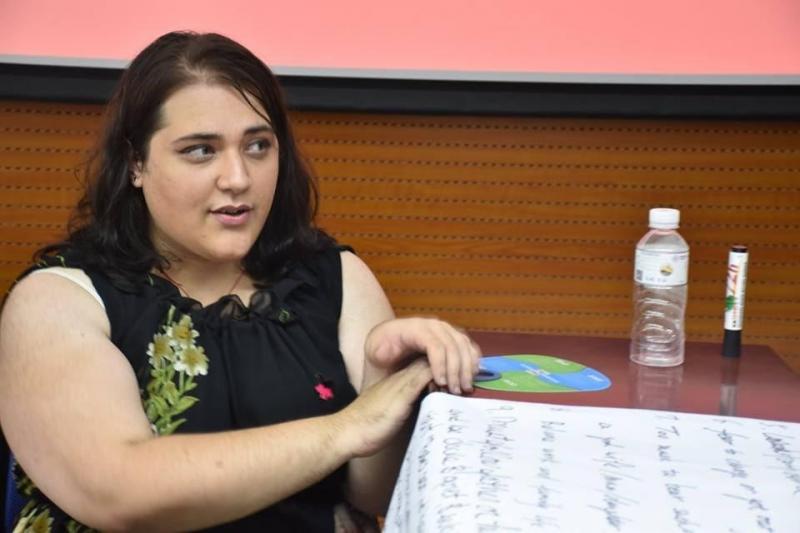Activismo por el trabajo sexual en Hungría
En septiembre de 2015, la Asociación de Trabajadorxs Sexuales de Hungría (SZEXE en su idioma original) celebró sus 15 años de trabajo en la lucha por afirmar los derechos y proteger a lxs trabajadorxs sexuales, así como por desmantelar el estigma contra ellxs
A SZEXE la crearon trabajadorxs sexuales sobre todo romaníes que trabajaban en la calle y sus aliadas, que se unieron para protestar por la sanción de una ley regulando el trabajo sexual. Se considera que el activismo por el trabajo sexual en Hungría comenzó en ese momento.
‘Zonas de tolerancia'
La ley contra la que protestó SZEXE fue «redactada para sacar a lxs trabajadorxs sexuales, sobre todo las de origen romaní, del octavo distrito de Budapest, Józsefváros, para poder mejorarlo y que resultara más fácil privatizar las propiedades en esa zona». Según esa ley, los municipios con más de 50 000 habitantes o con zonas con gran presencia de prostitución tenían que definir las llamadas 'zonas de tolerancia'. Ejercer el trabajo sexual fuera de esas zonas específicas pasó a ser ilegal, pero las autoridades se resistieron a definir dichas zonas. El resultado de esto fue que la actividad de un número significativo de trabajadorxs sexuales pasó a ser ilegal y muchas de ellxs fueron multadxs o arrestadxs.
La relación hostil que mantenían con la policía agravó aún más su situación:
«Lxs trabajadorxs sexuales no recurren a la policía en busca de protección frente a la violencia o a otros delitos sino que le temen» – SZEXE
Enfrentándose al maltrato
Una de las prioridades de SZEXE es brindar ayuda legal a las trabajadorxs sexuales y desde su comienzo la organización ha iniciado muchas acciones legales que llevaron a varios distritos de Budapest a verse obligados a 'identificar zonas de casi-tolerancia'. Pese a estos veredictos, SZEXE ha presenciado y documentado numerosos incidentes de maltrato policial contra trabajadorxs sexuales.
«La policía aprovechó la falta de certeza jurídica en torno a las zonas de tolerancia y en forma injusta se dedicó a multar a trabajadorxs sexuales para cumplir con sus cuotas».- SZEXE

En cientos de casos, SZEXE ha logrado cuestionar «las multas y detenciones arbitrarias realizadas por la policía».
Desde que Hungría se sumó a la Unión Europea en 2004, la asociación también comenzó a implementar proyectos pioneros e innovadores para «estimular procesos organizativos autónomos en la comunidad, empoderar a las trabajadorxs sexuales para que brinden servicios a sus pares en áreas como el VIH o como auxiliares jurídicas y hacer que se conviertan en defensoras activas frente a la marginación y la pobreza, todo esto con el apoyo del Fondo Social Europeo».
SZEXE también apoya a las trabajadorxs sexuales brindándoles educación entre pares, consejerías para migrantes, servicios de salud comunitaria y capacitación como emprendedorxs. También ha fortalecido su incidencia a nivel nacional e internacional. Como producto de sus esfuerzos de lobby y del informe sombra que redactaron, el Comité para la Eliminación de la Discriminación contra la Mujer (CEDAW) consideró «preocupante la discriminación contra las trabajadorxs sexuales y la inexistencia en el Estado de medidas destinadas a garantizarles condiciones laborales seguras».
La reducción del espacio para la sociedad civil en Hungría
Pese a las batallas ganadas y los numerosos logros alcanzados hasta ahora, «la situación de lxs trabajadorxs sexuales y su grado de movilización han empeorado en los últimos años en Hungría», según SZEXE. Como producto de la represión contra la sociedad civil que está llevando adelante el gobierno actual (de derecha), SZEXE es una de las organizaciones que han perdido «todas sus principales fuentes domésticas de financiamiento en un contexto donde se está reduciendo el espacio para la sociedad civil», mientras que a las ONG pro-gobierno se las financia a través de programas para apoyar «los valores tradicionales de la familia y la construcción /fortalecimiento de la identidad nacional».

Otro aspecto de esta tendencia preocupante es la ley de contravenciones promulgada en 2012, que tuvo un efecto desproporcionado sobre los grupos marginados como la población romaní, las personas sin hogar, usuarias/os de drogas y trabajadorxs sexuales. Esa ley generó discriminación y una vigilancia policial desproporcionada sobre lxs trabajadorxs sexuales que «reciben multas por violar regulaciones formuladas en forma vaga acerca del trabajo sexual o directamente en forma arbitraria...». SZEXE afirma que solo en 2012 se iniciaron más de 14 000 causas por contravenciones contra trabajadorxs sexuales. Esta situación se agrava por el hecho de que la falta de compromiso gubernamental con su derecho a la salud las ha colocado en una posición aún más vulnerable.
Movimiento(s) incluyente(s)
Para continuar desafiando la discriminación, el estigma y las violaciones a los derechos humanos (no solo en Hungría sino en todo el mundo) es necesario construir y sostener movimientos incluyentes, diversos y fuertes. SZEXE se afilió a AWID tras participar en el Foro Internacional de AWID 2012.
«Esa reunión constituyó una gran inspiración para las compañeras de SZEXE, que por primera vez se vincularon con el movimiento feminista internacional y conocieron las luchas de las mujeres en distintas partes del mundo, a veces muy similares a las suyas». – SZEXE
La participación de SZEXE en el Foro hizo que sus integrantes reforzaran su percepción acerca de las posibilidades de movilización colectiva dentro del movimiento (o los movimientos) mundial(es) por los derechos de las mujeres. «Inspiradas por la diversidad de voces y de causas en el movimiento, nuestra organización alza su voz contra el sexismo, la putafobia, la homofobia y la transfobia, el racismo y el odio de clase presentes en demasiadas sociedades».
«SZEXE quiere contribuir a un movimiento feminista que incluya las necesidades y voces de aquellas mujeres a las que los grupos de la sociedad civil y quienes formulan políticas muchas veces dejan de lado, como las mujeres trans*, trabajadoras sexuales o migrantes.»- SZEXE
Mira el video «Sex Workers Against the Tide» (en húngaro, con subtítulos en inglés)


